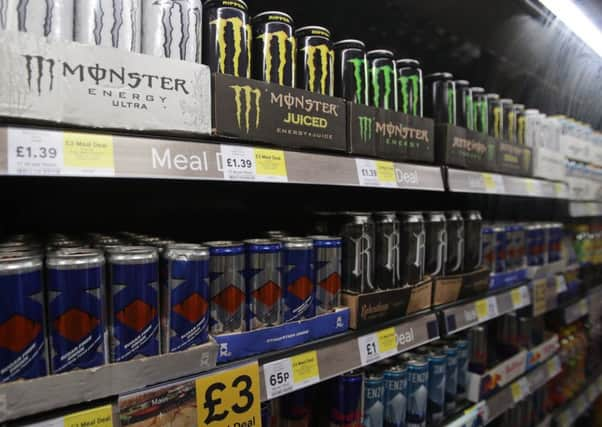Steve Brine: Why the Government plans to ban energy drinks for children


It’s fairly sobering reading that, by the time they leave primary school, one in every three children are now overweight or obese – and obese children are highly likely to become obese adults.
While it’s my responsibility as a parent to ensure this is not the future for my own children, it’s also my responsibility as Minister for Public Health to make sure the Government does something about it too.
Advertisement
Hide AdAdvertisement
Hide AdWe all have a duty to protect children from products that are damaging to their health and education, and we know that drinks packed to the brim with caffeine, and often sugar, are becoming a common fixture of their diet.
Obesity costs the NHS and UK taxpayers £6.1bn annually – to put that into context, that’s equivalent to the spending of all NHS trusts in an entire month.
The proportion of the population who are obese is expected to increase significantly over the coming decades, so it’s clear we have to renew the Health Service’s focus on preventing ill health as well as treating it.
While many of us will recognise that consuming too much fatty, sugary food is one of the key causes of obesity and other health problems, some of the facts about energy drinks are simply astounding.
Advertisement
Hide AdAdvertisement
Hide AdOne 250 ml can of energy drink can contain around 80 mg of caffeine – the same as nearly three 330 ml cans of cola. Non-diet energy drinks also contain, on average, around two-thirds more sugar than other non-diet soft drinks.
Excessive consumption has been linked to a range of health issues in children, ranging from headaches, sleep problems, and stomach aches to hyperactivity.
And research suggests British teenagers are drinking 50 per cent more of the stuff as those in the rest of Europe. This is why we have launched a consultation on banning the sale of energy drinks to children.
Some major retailers have already introduced their own bans; we think a level playing field is needed for retailers to restrict sales to children across the board.
Advertisement
Hide AdAdvertisement
Hide AdSmaller retailers, corner shops and vending machines – places children pass by on their way to and from school – stock energy drinks, often, with no age limits and at low prices.
In some outlets, it’s possible to buy four cans for £1.
While this Government thinks the law needs to change to reduce excessive consumption, our consultation will ask a number of questions to help us get this legislation right.
Should vending machine sales be banned? Should a ban apply to under-18s or under-16s? Should we even change the law at all?
It follows the publication of the latest chapter of the Government’s childhood obesity plan in June 2018, which outlines a series of measures as well as a commitment to halve childhood obesity by 2030.
Advertisement
Hide AdAdvertisement
Hide AdOverconsumption, combined with reduced activity, is having a catastrophic effect on our children’s health.
Teachers have suggested energy drink consumption among their pupils leads to poor behaviour in the classroom. With more than two-thirds of children aged 10 to 17 and – even more concerning – a quarter of six to nine-year-olds consuming energy drinks, effective learning is potentially being hampered by a heady mix of caffeine and sugar.
Energy drinks have only been prevalent in the British market since the early nineties; I am mercifully too old to have been exposed to them myself as a child. We are asking the public to give us their views on the matter over the next 12 weeks to ensure energy drinks are not being excessively consumed by children.
The consultation proposes that a ban would apply to drinks that contain more than 150mg of caffeine per litre and prevent all retailers from selling the drinks to children. Questions in the consultation include whether the law should be changed to prevent children from buying them in any situation.
Advertisement
Hide AdAdvertisement
Hide AdAs I see it, knowing the facts and not acting would mean letting down a whole generation. We have to put children’s health first.
Steve Brine is MP for Winchester and Minister for Public Health and Primary Care. A version of this article first appeared on the Conservative Home website.